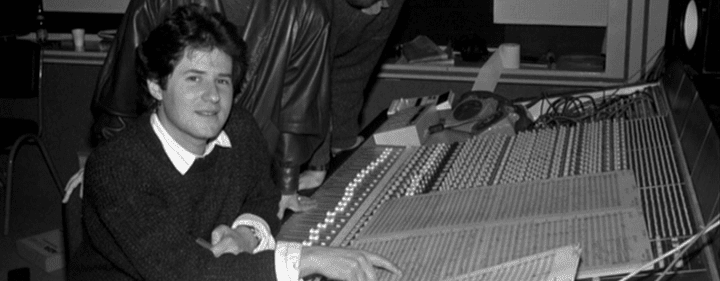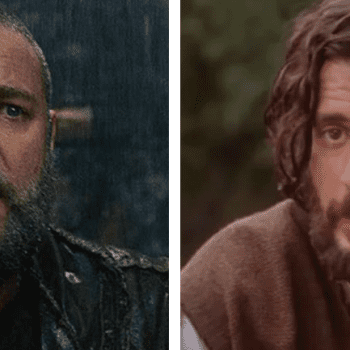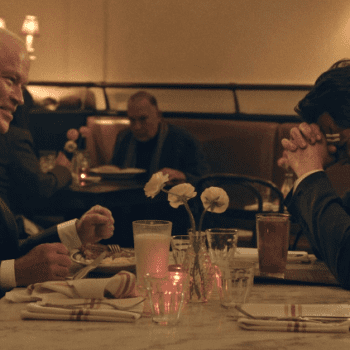Sad, sad news. James Horner, who composed the music for well over a hundred films — winning two Oscars and co-writing hit songs like ‘Somewhere Out There’ and ‘My Heart Will Go On’ along the way — passed away in a plane crash yesterday.
Horner has IMDb credits going back to 1978, but I first discovered him when he wrote the score for Star Trek II: The Wrath of Khan in 1982. He went on to write the score for its sequel, The Search for Spock, as well. I wrote about his contributions to those films in a series of posts I did on “music for Klingons” two years ago, here.
When I started collecting movie soundtracks in the mid-1980s, Horner was one of my heroes. His action cues were exciting, and his emotional cues could move me to tears — and sometimes he went straight from action to emotion without skipping a beat, not least in tracks like ‘Genesis Countdown’, which charts the final moments of Captain Spock’s life as he saves his friends from certain destruction in Star Trek II.
Horner’s versatility was amply demonstrated when, in 1987, he got his first two Oscar nominations for two radically different films: the sci-fi horror film Aliens, the music for which has been featured in countless action-movie trailers since, and the animated An American Tail, which spawned the hit single ‘Somewhere Out There’. (Horner lost to ’Round Midnight and Top Gun’s ‘Take My Breath Away’, respectively.)
As it happens, all of the Horner-scored films I have mentioned so far were follow-ups to films that had been scored by Jerry Goldsmith (Star Trek: The Motion Picture, Alien and Don Bluth’s non-Disney debut The Secret of NIMH). And what’s interesting is how Goldsmith’s scores were great, but Horner’s were great too, and Horner’s scores assisted the follow-up films in establishing their own distinctive identities.
Horner would go on to receive eight more nominations — including, of course, two for 1997’s Titanic, both of which he won: best original dramatic score, and best original song (shared with lyricist Will Jennings), for ‘My Heart Will Go On’. But before he became known for that feminist romance, his other nominated scores included 1989’s Field of Dreams, which has a well-earned reputation for making grown men cry, and 1995’s Braveheart, which brought Celtic themes to the big screen in a big way.
I must confess I have never spent much time in the company of Braveheart or Titanic. I was always much more inclined to listen to Horner’s themes for 1985’s Cocoon, 1986’s The Name of the Rose (‘The Confession’ is one of my favorite tracks from any music genre ever), 1989’s Glory, 1991’s The Rocketeer and 1993’s Swing Kids.
By the mid-1990s, I had cooled to Horner somewhat. By now, I could detect recurring patterns in his music, and at times it felt like he was phoning it in. Plus, with the arrival of the internet, I soon discovered that there were many soundtrack buffs who didn’t like Horner at all, and regarded him as something of a serial plagiarist.
Well, I never went that negative on him. When a man scores three or four movies per year, you can’t expect everything he does to be brilliant, or fresh.
And the fact is, he did write some brilliant scores.
Many thanks, Mr Horner. My condolences to your loved ones. And memory eternal.
P.S.: Since I write about Bible movies so much, I should probably note that Horner, to my knowledge, never scored any. Interestingly, he did score three of Mel Gibson’s four directorial efforts — The Man without a Face, Braveheart and Apocalypto — but he did not, for whatever reason, score The Passion of the Christ. I wonder why not.
— The image at the top of this post is from a featurette on the Aliens DVD.













